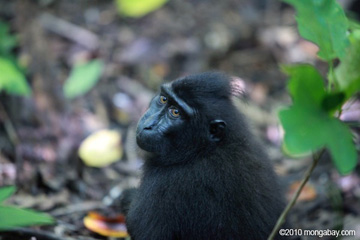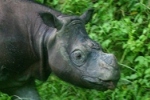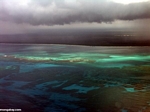In a speech in Nagoya, Japan at the UN’s Convention for Biological Diversity (CBD) actor and conservationist, Harrison Ford, called on delegates to put aside differences and adopt a strong treaty to protect biodiversity. As a US citizen, he also urged his country to become a full signatory of the CBD.
“The time has come for the United States to step up to the plate. The problem is so big and the time is so short, we have no choice. We have to act and we have to act now,” said Ford, well-known for roles in the Star Wars and Indiana Jones films among others. Off the silver screen, Ford is the Vice Chair of environmental organization, Conservation International (CI).
The US is one of three countries that has not signed onto the UN’s Convention for Biological Diversity (CBD): the other two are Andorra and the Holy See. President Bill Clinton signed the treaty in 1993, but the US Senate refused to ratify it.
Ford told CNN that he was “embarrassed” the US was not yet a signatory.
“Nature is at the tipping point. We have to act decisively, boldly now. We have to be efficient with the use of our resources. We have to be directed and focused on the most important thing, the most important places. The places that provide the greatest reservoirs of biodiversity and provide the greatest services to the human community,” Ford said to CNN.
 The Celebes crested macaque is one of 3,565 species that are listed as Critically Endangered by the IUCN Red List, the highest-risk category until a species vanishes. The Celebes crested macaque is native to the Indonesian island of Sulawesi. Photo by: Rhett A. Butler. |
A number of recent reports have shown that despite the goal of the CBD to have stemmed biodiversity loss by this year, wildlife populations and species continue to precipitously decline. According to the IUCN, 20% of the world’s vertebrate species are under threat of extinction and the number climbs higher every year. Another report, by the World Wide Fund for Nature (WWF), found that wildlife populations have declined by 30% overall since 1970.
Ford, along with CI, is pressing the international community to commit to protecting 25% of world’s landmass and 15% of the oceans by 2020. Currently approximately 13% of the world’s landmass is under some form of protection and less than 2% of the oceans. Although some of these areas still suffer from habitat destruction and poaching.
Asked to convince people why they should care about biodiversity, Ford said on CNN: “It is in your self interest. Human beings are part of the natural world and the natural world requires all of its components working—just like the body requires all of its organs working together. The natural requires biodiversity—all of the elements of life working together—in order to be healthy”.
Scientists say that biodiversity provides numerous ‘ecosystem services’ including pollination, food production, new medicines, soil health, clean water, and carbon sequestration among others that are not factored yet into the economic system. A recent analysis by The Economics of Ecosystems and Biodiversity (Teeb) found that degradation of ecosystems by the world’s top 3,000 corporations was costing the world $2.2 trillion every year with such costs disproportionately hitting the poor.
The CBD meeting was buoyed yesterday by an announcement of a $2 billion fund from Japan to help developing nations conserve biodiversity.
Related articles
The march to extinction accelerates

(10/26/2010) A fifth of the world’s vertebrate species (i.e. mammals, birds, reptiles, amphibians, and fish) are threatened with extinction, according to a massive new study by the International Union for the Conservation of Nature (IUCN); and the situation is worsening for the world’s wildlife: on average 52 species of mammals, birds, and amphibians move one category closer to extinction every year (the IUCN Red List categorizes species as Least Concern, Near Threatened, Vulnerable, Endangered, Critically Endangered, Extinct in the Wild, and then Extinct). However, the news isn’t all bad. The study found that conservation action does work: in the first analysis of its kind, researchers found that the global biodiversity decline would have been 18% worse if not for conservation attention, “nonetheless,” the authors—174 scientists from 38 countries—write, “current conservation efforts remain insufficient to offset the main drivers of biodiversity loss.” According to the study, these drivers include agricultural expansion, logging, over-exploitation of species, and invasive species.
World needs to protect 32 million square kilometers of ocean in two years
(10/20/2010) According to goals set in 2002 by the Convention on Biological Diversity (CBD) and the World Summit on Sustainable Development, nations must spend the next two years catching-up on creating ocean reserve. Currently, about 1.17 percent of the ocean is under some form of protection, but the 2002 goal was 10 percent by 2012. That means protecting over 32.5 million square kilometers, of the ocean twice the size of Russia. According to a recent report, Global Ocean Protection by the Nature Conservancy, not only is the world failing on its goals to protect a significant portion of the ocean, it’s also failing to protect 10 percent of various marine ecosystems.
Humanity consuming the Earth: by 2030 we’ll need two planets

(10/13/2010) Too many people consuming too much is depleting the world’s natural resources faster than they are replenished, imperiling not only the world’s species but risking the well-being of human societies, according to a new massive study by the World Wildlife Fund (WWF), entitled the Living Planet Report. The report finds that humanity is currently consuming the equivalent of 1.5 planet Earths every year for its activities. This overconsumption has caused biodiversity—in this case, representative populations of vertebrate animals—to fall by 30 percent worldwide since 1970. The situation is more dire in tropical regions where terrestrial species’ populations have fallen by 60 percent and freshwater species by 70 percent.








